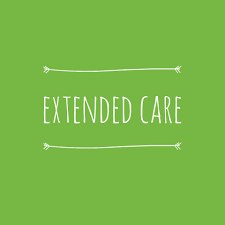How Do I Plan for Medicaid?
May 29, 2024
 The best time to plan for the possibility of nursing home care is when you’re still healthy. By doing so, you may be able to pay for your long-term care and preserve assets for your loved ones. How? Through Medicaid planning.
The best time to plan for the possibility of nursing home care is when you’re still healthy. By doing so, you may be able to pay for your long-term care and preserve assets for your loved ones. How? Through Medicaid planning.Tags: charlotte NC, Health Care Needs, Health Care Savings, Medicare
Buying Supplemental Health Insurance: Medigap
May 3, 2024

Medicare won’t cover all of your health-care costs during retirement, so you may want to buy a supplemental medical insurance policy known as Medigap. Offered by private insurance companies, Medigap policies are designed to cover costs not paid by Original Medicare (Parts A and B), helping you fill the gaps in your Medicare coverage. You’ll pay the private insurance company a monthly premium in addition to the monthly Part B premium you pay to Medicare.
Tags: Estate Planning, Long-Term Care Planning, Medicare
Health Insurance in Retirement
Jan 24, 2024
 At any age, health care is a priority. When you retire, however, you will probably focus more on health care than ever before. Staying healthy is your goal, and this can mean more visits to the doctor for preventive tests and routine checkups. There’s also a chance that your health will decline as you grow older, increasing your need for costly prescription drugs or medical treatments. That’s why having health insurance is extremely important.
At any age, health care is a priority. When you retire, however, you will probably focus more on health care than ever before. Staying healthy is your goal, and this can mean more visits to the doctor for preventive tests and routine checkups. There’s also a chance that your health will decline as you grow older, increasing your need for costly prescription drugs or medical treatments. That’s why having health insurance is extremely important.Tags: Certified Financial Planner Charlotte NC, Insurance, Medicare, Personal Finance, retirement
Understanding Extended Care
Mar 23, 2022

Addressing the potential threat of extended care expenses may be one of the biggest financial challenges for individuals who are developing a retirement strategy.
The Administration for Community Living estimates that by 2060, 94.7 million Americans will be aged 65 and older. Of those, it’s estimated that someone who just turned 65 has an almost 70% chance of needing some type of extended care.1,2 (more…)
Tags: Health Care Needs, Health Care Savings, Long-Term Care Planning, Medicare
Eldercare Choices in the COVID-19 Era
Jul 26, 2021

Given the threat of COVID-19, seniors today may be considering their eldercare alternatives with extra caution.
In addition to health factors, the cost can be an issue. According to Genworth’s 2020 Cost of Care Survey, the median annual cost of a semi-private room in a nursing home is now $90,000. A single-occupancy room may cost over $100,000 a year.1 (more…)
Tags: Current Events, financial advisor charlotte nc, Long-Term Care Planning, Medicare, retirement, Risk Management
Group Life for a Growing Business
Dec 14, 2020
As companies grow and add employees, they also add employee benefits. Retirement and medical plans can be provided, but what about group life insurance?
Group life on the menu? Owner-operators know that group life coverage can help attract excellent workers, but some are anxious about the cost and suspect they are just “small fish” to insurers. In reality, coverage may be very affordable and include a variety of policy choices. (more…)
Tags: Employee Benefit Planning, Health Care Savings, Insurance, Long-Term Care Planning, Medicare
Managing Drug Costs
Nov 27, 2020
Are prescription drug costs burdening your finances? Some people find it a challenge to manage the cost of prescription drugs. Americans pay an average of $1,200 per year for medicine. For those facing greater and more dangerous ailments, some drug costs are $10,000 per month or even lump sums in excess of $80,000 for certain drug therapies. Yes, health insurance and Medicare Part D can help you, but not everyone has access to Medicare, and not every insurance company has the same formulary. This means that your coverage may fall short—not something you want to hear when wrestling with a major diagnosis.1 (more…)
Tags: Certified Financial Planner Charlotte NC, charlotte NC, Family Wealth, financial advisor, Health Care Needs, Health Care Savings, Medicare, Personal Finance, Spending Habits
Extended Care. How Much Do You Know?
Sep 14, 2020
How much does extended care cost, and how do you arrange it when it is needed? The average person might have difficulty answering those two questions, for the answers are not widely known. For clarification, here are some facts to dispel some myths. (more…)
Tags: Financial Help, Health Care Needs, Health Care Savings, Long-Term Care Planning, Medicare
The A B C D of Medicare
Aug 19, 2020
Whether your 65th birthday is on the horizon or decades away, understanding the different parts of Medicare is critical, as this government-sponsored program may play a role in your future health care decisions. (more…)
Tags: Financial Help, Health Care Needs, Medicare
Facts About Medicare Open Enrollment
Nov 27, 2019
Medicare’s open enrollment period runs through December 7th. If you are enrolling in Medicare for the first time, you will discover that it is much more complex than an employer-sponsored group health plan.
When you are enrolled in Medicare, you pay multiple premiums for multiple types of coverage (Parts A and B as well as the Part D prescription drug plan), and unlike a group health plan, there are no caps on out-of-pocket costs and a risk that you might have to pay a hospital insurance deductible more than once per year. Original Medicare also does not cover some costs that many seniors would like to cover, such as dental and vision care expenses. (more…)
Tags: financial advisor charlotte nc, Health Care Needs, Medicare
More Insights
Key Takeaways Volatility came back with a vengeance this week as selling pressure in the mega cap space dragged down the broader market. Counterbalancing weakness in these heavyweight names poses a challenge for the rest of the market. Overbought conditions can also be blamed for the recent weakness. The S&P 500 reached a 14.9% premium … Continue reading “Market Update – Assessing the Technical Damange”
Life insurance can be an excellent tool for charitable giving. Not only does life insurance allow you to make a substantial gift to charity at relatively little cost to you, but you may also benefit from tax rules that apply to gifts of life insurance.
When you think of Social Security, you probably think of retirement. However, Social Security can also provide much-needed income to your family members when you die, making their financial lives easier. Your family members may be eligible to receive survivor benefits if you worked, paid Social Security taxes, and earned enough work credits. The number … Continue reading “Social Security Survivor Benefits”
Information vs. instinct. When it comes to investment choices, many people believe they have a “knack” for choosing good investments. But what exactly is that “knack” based on? The fact is, the choices we make with our assets can be strongly influenced by factors, many of them emotional, that we may not even be aware … Continue reading “Making Investment Choices”
As a business owner, you should carefully consider the advantages of establishing an employer-sponsored retirement plan. Generally, you’re allowed certain tax benefits for establishing an employer-sponsored retirement plan, including a tax credit for establishing the plan and a deduction for contributions you make. In return, however, you’re required to include certain employees in the plan, … Continue reading “Retirement Plans for Small Businesses”
Services
Epic Capital provides the following comprehensive financial planning and investment management services: Learn More >

 Top of Page
Top of Page











